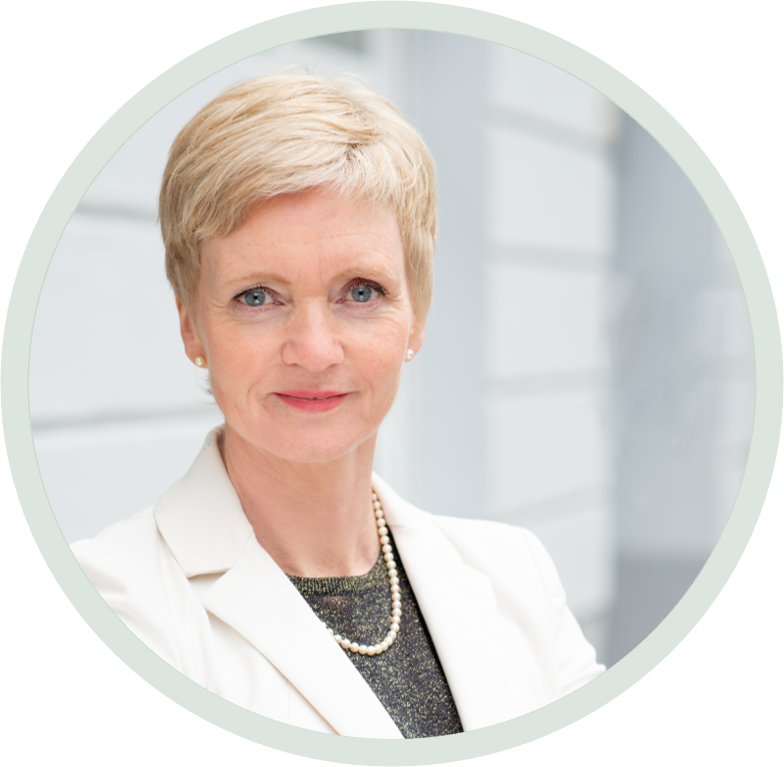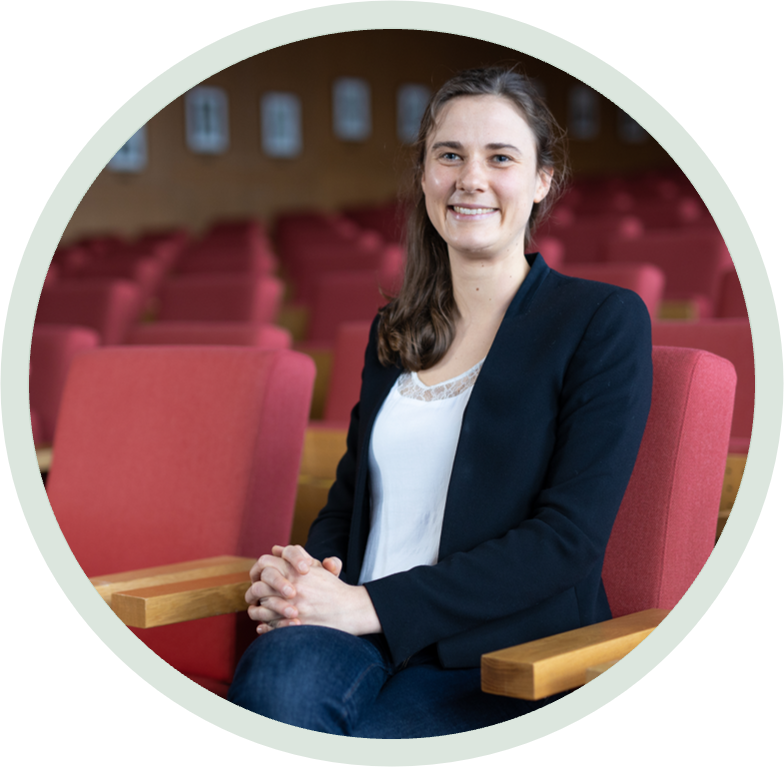Celebrating boundary-breaking science

The Bayer Foundation’s Hansen Family Award in Medical Sciences and Early Excellence in Science Award were presented on March 16, 2022. Professor Kai Johnsson received the prestigious Hansen Family Award, in recognition of his ground-breaking work in establishing approaches to protein labelling in living cells. Four young scientists – Dr. Marieke Oudelaar, Dr. Connor W. Coley, Dr. Dasha Nelidova and Dr. Maria Zimmermann-Kogadeeva - were presented with Early Excellence in Science Awards.
Equity, collaboration and trust in science
Monika Lessl, Executive Director of Bayer Foundation opened the celebration of these remarkable scientists. She explained how important the awards are to the Foundation’s goal to advance equity, collaboration and trust in science.

“By identifying outstanding leaders and young talents in breakthrough areas of the life sciences, we foster interdisciplinary collaboration to address the complex global challenges we are facing as a society.” Dr. Monika Lessl
“We’ll keep a close eye on what happens next”, Bayer AG CEO Werner Baumann said, with a humorous nod to the Bayer Foundation’s history of identifying ground-breaking research at an early point in time: Since 1984, when the Foundation first recognized boundary-breaking scientists, four awardees of the Hansen Family Award or the Otto Bayer Award in chemistry or biochemistry went on to receive a Nobel Prize shortly afterwards.
Werner Baumann emphasised the importance of how Professor Johnsson builds bridges between science and society: As the co-founder of four companies, Johnsson builds on the knowledge he advanced to serve people. The award ceremony itself intends to build such bridges. “Our event is not only a reward of past achievements but brings the inspiring discoveries and unique skills of truly brilliant minds to a diverse audience of scientists, innovators – and society. By sharing knowledge and expertise widely, we open the door to new collaborations, to new instruments in research and, ultimately, we further enhance the impact of science.” Baumann added that Johnsson’s research area at the intersection of biology, chemistry and artificial intelligence, leads to true breakthroughs, which would help to develop drugs faster, provide individualized health solutions, and develop sustainable food systems.
Hansen Family Award in Medical Sciences

Kai Johnsson stands in a line with great scientists who realized the potential of chemistry for biology and medicine. Johnsson’s SNAP-tag may actually be regarded as the magic bullet of cell biology: a magic bullet that can target and label only one specific protein.” Prof. Patrick Cramer
Prof. Johnsson then showcased his research and its significance to society, grounding his presentation in a historical perspective. “Chemistry has always been a driver for pushing biology forward,” Johnsson reflected. He then impressed the audience with a tour-de-force of how his research in chemistry has propelled biological research forwards. During his career, , Johnsson has tackled the question of specifically labelling proteins to reveal cells’ inner workings. Twenty years ago, he introduced self-labelling protein tags, and further developed SNAP-tag labelling. With a smile, Johnsson downplayed the achievement: “It is as easy as 1, 2, 3!” Ten years ago, Johnsson and his team employed silicon-rhodamines as dyes to fluorescently label specific proteins, a technique frequently used in cell biology – and even on the International Space Station. “The possibility of attaching chemicals to protein also allows for applications in molecular diagnostics,” Johnsson said, introducing his current work on developing a biosensor to measure phenylalanine as potential point-of-care tests for patients diagnosed with phenylketonuria, a rare but potentially serious inherited disorder.
In his speech, Johnsson emphasized why science needs to connect with society. “Scientists get their means from society, so we first of all have to be grateful. At the same time, the work that we do can impact the life of our society and we have to find ways of communicating this to society.”
Early Excellence in Science Awards 2021
The Bayer Early Excellence in Science Awards were awarded in four categories to brilliant young scientists from across the globe who are already beginning to transform their fields of research. Two awardees joined the ceremony virtually, so Monika Lessl handed over the awards “through the ether”.
Dr. Marieke Oudelaar, at the Max Planck Institute for Biophysical Chemistry in Göttingen, received the award in the Biology category for her outstanding contributions to developing methods, which are used to characterize the genome’s 3D structure, and for her work on the interaction between gene-regulatory elements. The award “confirms the significance of the fundamental research into the principles of gene regulation and genome regulation that we do”, Oudelaar said.

"I think it’s great that the Bayer Foundation recognises such basic, curiosity-driven research as being relevant for health and society in the long term.” Dr. Marieke Oudelaar
In the Chemistry category, the award went to Dr. Connor W. Coley, at MIT, for his pioneering work in applying machine learning to virtual screening, prediction, and automated synthesis of novel small organic molecules with therapeutical potential. What inspires Coley is “the potential for the machine learning techniques we develop to help discover new therapeutic molecules without relying so much on human intuition.” For Coley, the award has meant an “opportunity to talk about the work we do to a much broader audience than we scientists are typically able to.”
Dr. Dasha Nelidova, at the Institute of Molecular and Clinical Ophthalmology in Basel, received the award in the Medical Sciences category for developing a revolutionary therapeutic approach to restore light sensitivity in the eye retina of patients who suffer from age-related macular degeneration by combining gene therapy and nanotechnology.
The award in the Data Science in the Life Sciences category went to Dr. Maria Zimmermann-Kogadeeva, at the European Molecular Biology Laboratory in Heidelberg. For her, the award means an opportunity to “get more visibility of my research and opportunities to collaborate with other researchers in industry and academia, as well as to build a network of mentors, mentees and peers.”
Bayer Foundation
Science Award Ceremony 2021
Author: Sophie Fessl
Event Pictures: Bayer Foundation



